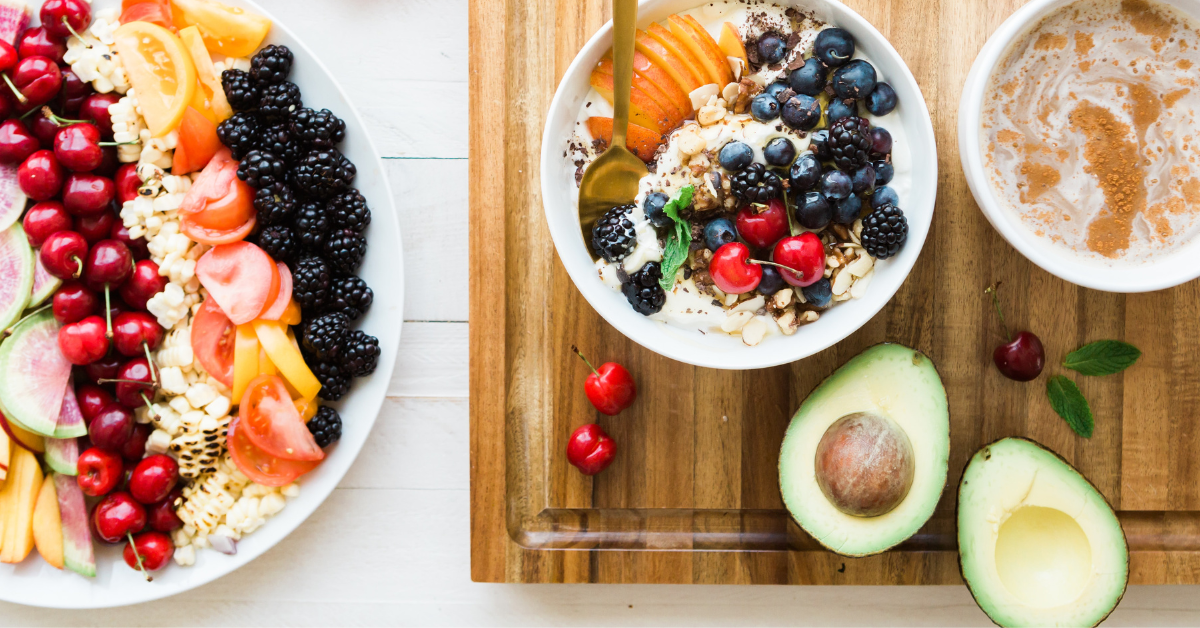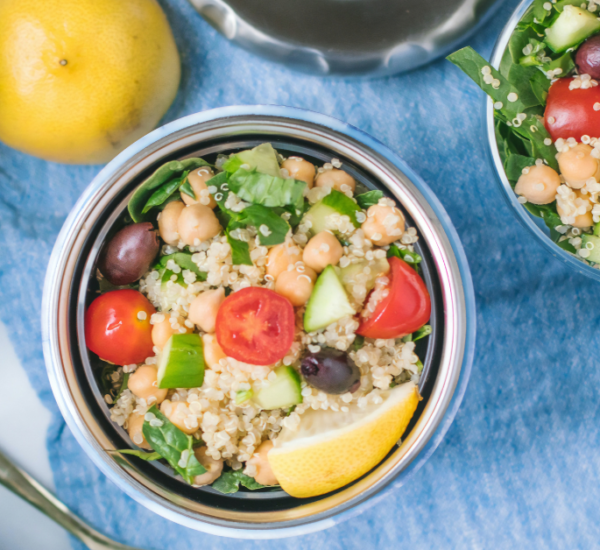Reviewed by: Erica An, BNutr&Diet
From Atikins to Zone, the popularity of low-carbohydrate diets has been around for many decades. The Keto, or rather ketogenic diet is no exception!
It’s no surprise these diets have captured the popular imagination with their appeal often laying in the promise of quick, effective weight loss whilst still allowing decadent foods previously seen as taboo (i.e. butter, cream and bacon.)
But what is Ketogenic diet and is it all it is hyped up to be?
So what is the keto diet?
Despite the recent hype, a ketogenic diet is not actually that new. Developed in the 1920’s, the first ‘keto diet’ was used to treat children with epilepsy. These days it is more often used as a ‘dieting method’ to lose weight.
The keto diet got its name because of the ketone bodies (a source of energy that the body uses when it’s burning fat) produced in response to the absence of the usually easily available glucose supply.
The modern ketogenic diet varies amongst its followers. However, all primarily focus on achieving a certain macronutrient ratio (needed to create ketones). This is ~ 60-75% of calories from fat, 15-30% of calories from protein, and 5-10% of calories from carbohydrates.
The premise is that when the body can no longer access glucose from its usual sources, it resorts to burning fat (either from eaten fat OR stored body fat). This forces the body to enter into what is know as a ketosis state. Thus potentially, eating into body fat reserves and helping you to lose weight quickly.
**It is important to add a disclaimer here and let you know that ketones are, in fact, produced in weight loss regardless of the type of calorie restricted diet you are following.
Pros of the keto diet
- You eliminate simple carbohydrates
This is a big one. We all know that sugar has become far to dominant in our modern food supply. Keto diets do eliminate sugar laden foods and all simple carbohydrates. Simple carbohydrates from refined sugars are known to spike blood sugar levels, leaving you exhausted, fatigued and hungry a short time after consumption (think: that 3pm sugar-induced slump).
In excess, simple carbohydrates can also convert quickly to fat in the body, particularly around arteries and organs.
- You’ll feel ‘fuller’ and more satisfied for longer
Protein and fats promote increased satiety. For example, eating a spoonful of sugar-free peanut butter will keep you satisfied for longer than a spoonful of Nutella (energy-wise, at least!)
Another perk of feeling full is that you will be less tempted to snack. This has the potential to bring your overall daily calorie count down, helping with weight loss.
Add to this the inclusion of taste bud tempting cream, butter and bacon and your food sense of dietary deprivation plummets (and satisfaction reigns).
- Certain fats and adequate protein are good for cellular repair, silky skin and hair growth.
Many low calorie diets lead to dry skin and leads to poor hair growth and dull flaky skin. Fatty acids, particularly those oily fish, are great for promoting healthy hair, younger-looking skin and tissue recovery.
- Weight loss
Research shows evidence of a quicker weight loss when patients go on a ketogenic or very low carbohydrate diet compared to a more traditional low-fat diet, or even a Mediterranean diet. Some initial weight loss is from water weight but this can have a positive effect on motivation. The difference in weight loss does seems to disappear over time though.
Even many keto proponents admit that, if the diet’s not done “the right way,” it can be the opposite of healthy. So what are the potential precautionary cons…..
Cons of the keto diet
- You compromise brain and muscle function
In cutting carbs to such a level, you’re cutting out the brain’s preferred fuel. There’s no better proven way to quickly refuel the body and regulate energy levels and hormone production then sensible balanced carbohydrate intake from whole foods.
Readily accessible muscle fuel is needed for optimising sports performance and recovery. A recent study in the Journal of Sports Medicine and Physical Fitness, researchers found that participants performed worse on high-intensity cycling and running tasks after four days on a ketogenic diet, compared to those who’d spent four days on a high-carb diet. Researchers hypothesising that the body is in a more acidic state when it’s in ketosis, possibly limiting its ability to perform at peak levels.
- You’ll put your health at risk if not done correctly.
Nutritional deficiencies are a definite risk with any diet that eliminates food groups. The Keto diet is no exception. With the absence of beans, legumes, whole grains and many fruits and vegetables you may start to experience nutritional deficiencies as many of these foods carry vitamins, minerals, and other nutrients you can’t get from any other source.
People with kidney, liver, and gout issues should use caution when considering a Keto diet. Such diets may increase the risk for further kidney failure, may overwhelm an already taxed liver, or may cause a flare up of gout.
- Weight gain
I know we mentioned that keto diets can lead to weight loss BUT….and here lays the problem… to lose weight on ANY diet you still need to achieve a calorie deficit. Energy balance can still remain positive regardless of the source of calories (carbohydrate, fat or protein).
The production of ketones (which you monitor on a Keto diet) doesn’t necessarily mean you are burning body fat it could just be a reflection of your body using that coconut oil in your mornings coffee. All you are doing, by adding that additional fat to the diet, when not in calorie deficit, is promoting a body fat gain.
Is Keto right for me?
Although Keto diets can initially accelerate weight loss, It is also important to remember, rapid yo-yo weight loss fluctuations (through any dieting method) has been linked to an increased mortality risk.
So, while cutting right back on refined carbohydrates is a good thing, there’s no substitute for a balanced diet full of a variety of colourful fruits and vegetables, lean meats, fish, whole-grains, nuts and seeds.
Therefore try to embrace change that is sustainable over the long term rather than any diet that promotes an extreme ‘either/or’ philosophy.
Consistency truly is the key.
For support and guidance in finding your own healthy habits, click here: https://www.12wbt.com








